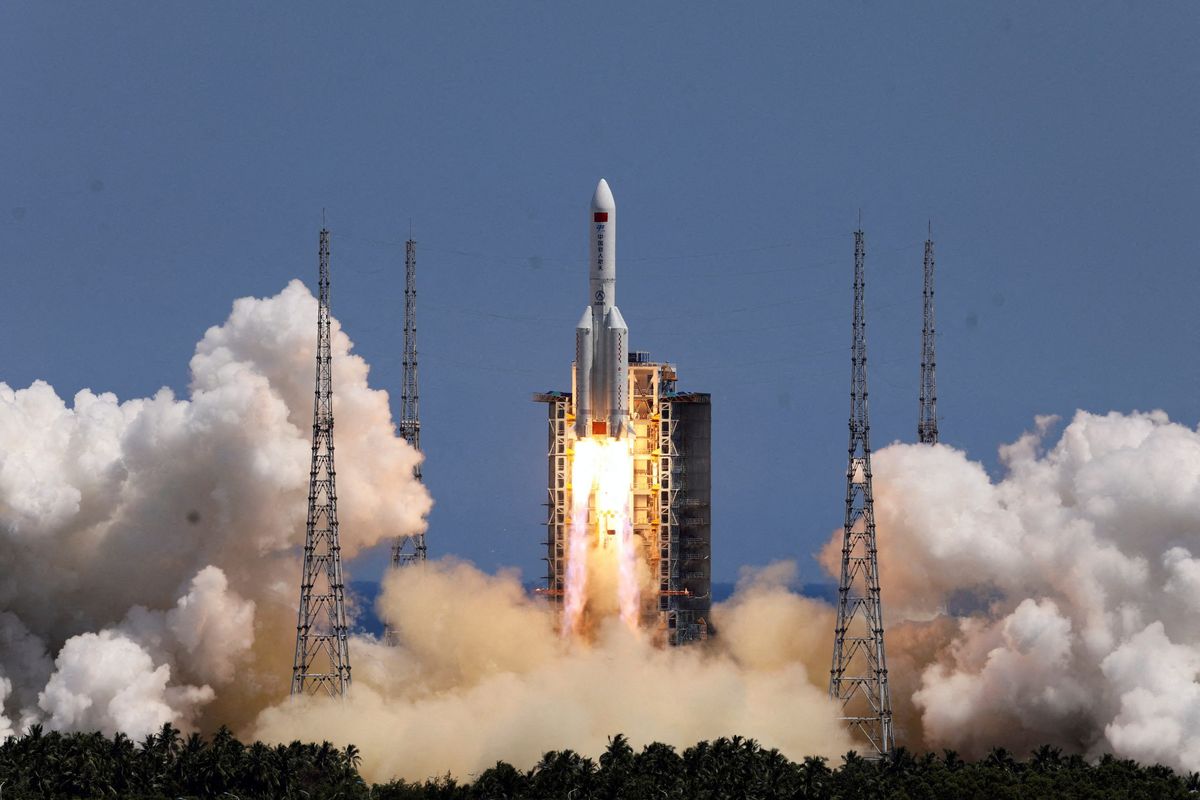Chinese rocket debris lands in the Philippines in uncontrolled reentry

A few minutes every morning is all you need.
Stay up to date on the world's Headlines and Human Stories. It's fun, it's factual, it's fluff-free.
On July 24, China launched a rocket with a new capsule for Tiangong, the country’s space station currently under construction. A launch into space is energy-intensive, and rocket boosters can use up all of their fuel in the process, which is exactly what happened with China’s latest launch vehicle. This is the third time that a Chinese rocket has come back to Earth in what’s called an “uncontrolled reentry." Now, the agency is facing international criticism for its space debris disposal practices.
Without thrusters, a rocket booster will fall back to Earth uncontrolled and on its own, which is how the Long March 5B became lawless space trash. Before reentry, China Manned Space Agency said the rocket would fall unguided. Beijing said it was closely tracking the rocket, and it posed “little risk" to anyone on the ground. But no one really knew where it would land … or when.
On Saturday, the rocket fell into the sea in the Philippines, according to the Chinese government. While China says most of the debris burned up entering the atmosphere, some of it remained intact and landed in the ocean.
Key comments:
“[China is] starting to launch things from Wenchang and places where – you know, that’s more towards the sea … And it is a clear and present danger because it isn’t just the rocket hitting. It’s the – any unspent fuel that might be in there as well, which is sometimes a problem," Professor Jim Head of Brown University, whose research collaborates with China’s space station, told NPR’s Scott Simon.
“The People’s Republic of China did not share specific trajectory information as their Long March 5B rocket fell back to Earth," NASA Administrator Bill Nelson tweeted on Saturday. “All spacefaring nations should follow established best practices, and do their part to share this type of information in advance to allow reliable predictions of potential debris impact risk, especially for heavy-lift vehicles, like the Long March 5B, which carry a significant risk of loss of life and property."




Comments ()